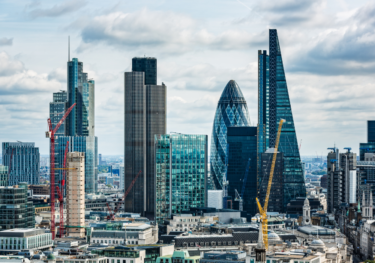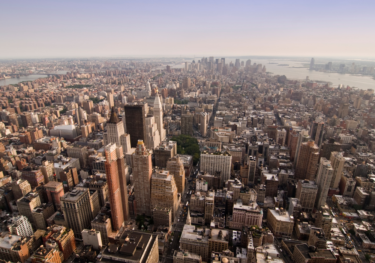Major China cities face prospect of growth downshift
Over the next five years China and its major cities face the prospect of a significant downshift in economic growth. We forecast GDP to grow on average by 4.1% per year across 15 major cities in the years to 2028, down from 7.3% between 2015-2019.
What you will learn:
- A key challenge facing China and its cities in the medium term is finding an engine for growth at a time when the country’s property sector is at a low ebb. Although real estate activity is typically a small sector for each city, it has linkages to other sectors, such a construction. These sectors will likely underperform in most cities in the next five years.
- China’s government instead places the emphasis of invigorating the country’s economic growth on its “new productive forces” of advanced IT services, and high-tech manufacturing. Cities with strength in these sectors, particularly the coastal tech cities of Shenzhen and Hangzhou, appear towards the top of our major city GDP growth rankings over the next five years.
- However, the significant regional imbalance in the concentration of these industries means some cities are at risk of being left behind. Qingdao, Shenyang, and others with economies that are largely entrenched in China’s traditional industrial base are forecast to feature further down the growth rankings.

Tags:
Related Posts

Post
Indian and Australian cities to outpace rivals over 2024-28
We forecast Indian cities to outpace the rest of APAC in terms of GDP growth over the medium term (2024-28). Southeast Asian cities such as Ho Chi Minh City and Jakarta will come close to matching Indian cities and will outperform Chinese ones. Among advanced APAC cities, we expect that Australian ones will fill the top two positions in terms of medium-run GDP growth.
Find Out More
Post
Europe: Among major southern cities, Madrid looks strongest
We are cautiously optimistic about the medium-term outlook for Europe's cities as a whole, but less sanguine about southern European cities than most others. They have tended to underperform in the past and will probably do so in the future. Madrid, the largest, has the strongest growth prospects of the larger cities.
Find Out More
Post
House price indexes rose steadily in most US metros
House prices increased in all but a handful of metros in Q4 2023 as indicated by their Federal Housing Finance Agency (FHFA) purchase-only house price indexes. However, the quarterly growth rates of the indexes decelerated in Q4 compared to Q3.
Find Out More